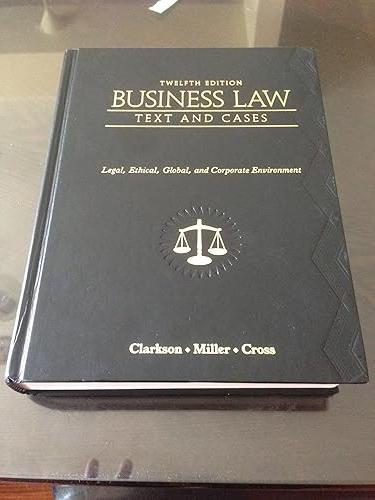Petitioner, Leegin Creative Leather Products, Inc. (Leegin), designs, manufactures, and distributes leather goods and accessories. In 1991,
Question:
Petitioner, Leegin Creative Leather Products, Inc. (Leegin), designs, manufactures, and distributes leather goods and accessories. In 1991, Leegin began to sell [products] under the brand name “Brighton.”
Respondent, PSKS, Inc. (PSKS), operates Kay’s Kloset, a women’s apparel store in Lewisville, Texas.
* * * It fi rst started purchasing Brighton goods from Leegin in 1995.
* * * *
In December 2002, Leegin discovered Kay’s Kloset had been marking down Brighton’s entire line by 20 percent. * * * Leegin stopped selling [Brighton products]
to the store.
PSKS sued Leegin in the United States District Court for the Eastern District of Texas. It alleged, among other claims, that Leegin had violated the antitrust laws by
“enter[ing] into agreements with retailers to charge only those prices fi xed by Leegin.” * * * [The court]
entered judgment against Leegin in the amount of $3,975,000.80.
The [U.S.] Court of Appeals for the Fifth Circuit affi rmed. * * * We granted certiorari * * * .
* * * *
The rule of reason is the accepted standard for testing whether a practice restrains trade in violation of
[Section] 1 [of the Sherman Act].
* * * *
Resort to per se rules is confi ned to restraints * * * that would always or almost always tend to restrict competition and decrease output. To justify a per se prohibition a restraint must have manifestly anticompetitive effects, and lack * * * any redeeming virtue.
[Emphasis added.]
As a consequence, the per se rule is appropriate only after courts have had considerable experience with the type of restraint at issue, and only if courts can predict with confi dence that it would be invalidated in all or almost all instances under the rule of reason.
* * * *
The reasoning of the Court’s more recent jurisprudence has rejected the rationales on which
[the application of the per se rule to minimum resale price maintenance agreements] was based. * * *
[These rationales were] based on formalistic legal doctrine rather than demonstrable economic effect.
* * *
* * * Furthermore [the Court]
treated vertical agreements a manufacturer makes with its distributors as analogous to a horizontal combination among competing distributors. * * * Our recent cases formulate antitrust principles in accordance with the appreciated differences in economic effect between vertical and horizontal agreements
* * * .
* * * *
The justifi cations for vertical price restraints are similar to those for other vertical restraints.
Minimum resale price maintenance can stimulate interbrand competition
* * * by reducing intrabrand competition * * * . The promotion of interbrand competition is important because the primary purpose of the antitrust laws is to protect this type of competition.
* * * Resale price maintenance also has the potential to give consumers more options so that they can choose among low-price, low-service brands;
high-price, high-service brands;
and brands that fall in between.
[Emphasis added.]
* * * *
While vertical agreements setting minimum resale prices can have procompetitive justifi cations, they may have anticompetitive effects in other cases; and unlawful price fi xing, designed solely to obtain monopoly profi ts, is an ever present temptation.
* * * *
Notwithstanding the risks of unlawful conduct, it cannot be stated with any degree of confi dence that resale price maintenance always or almost always tends to restrict competition and decrease output.
Vertical agreements establishing minimum resale prices can have either procompetitive or anticompetitive effects, depending upon the circumstances in which they are formed. * * * As the [per se]
rule would proscribe a signifi cant amount of procompetitive conduct, these agreements appear ill suited for per se condemnation.
* * * *
The judgment of the Court of Appeals is reversed, and the case is remanded for proceedings consistent with this opinion.
Questions:-
1. Should the Court have applied the doctrine of stare decisis to hold that minimum resale price maintenance agreements are still subject to the per se rule? Why or why not?
2. What factors might the courts consider in applying the rule of reason to minimum resale price maintenance agreements?
Step by Step Answer:

Business Law Text And Cases Legal Ethical Global And Corporate Environment
ISBN: 9780538470827
12th Edition
Authors: Kenneth W. Clarkson, Roger LeRoy Miller, Frank B. Cross





